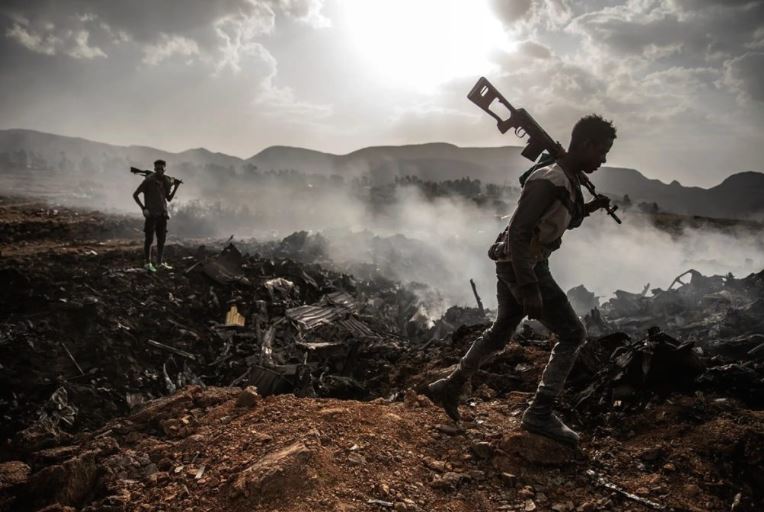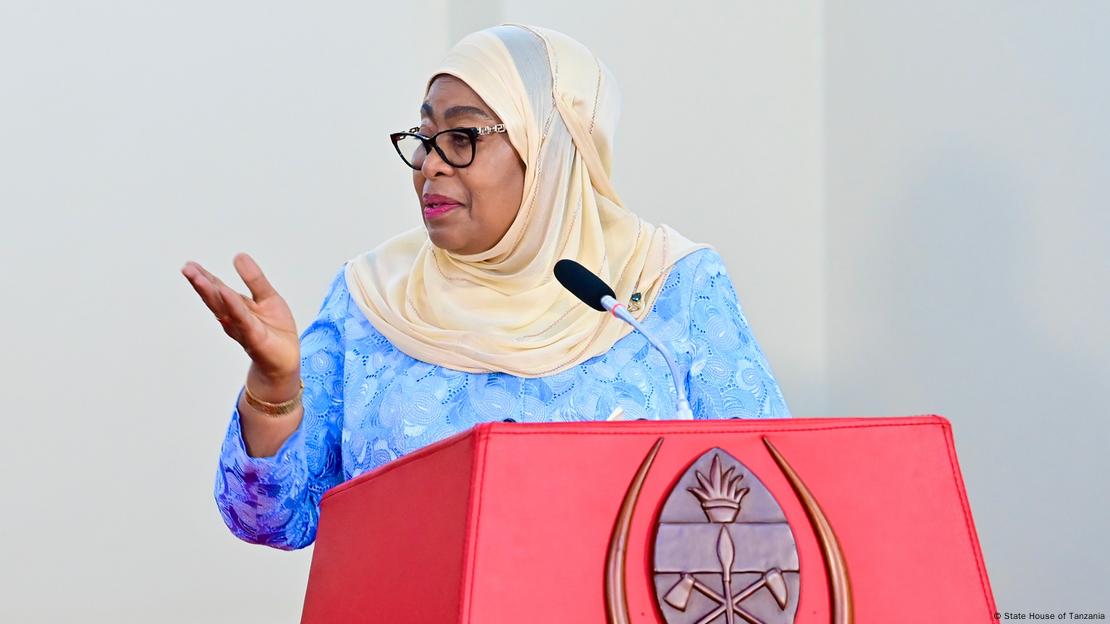Commentary: Worse than evil; how stupidity fueled Ethiopia into raging inferno

In the Tigray war, dubbed the deadliest and bloodiest conflict of the twenty-first century, the average estimate of civilian casualties stands at 518,000, possibly as high as 808,000.
Commentary: Worse than evil: How stupidity fueled Ethiopia into raging inferno
In the last half dozen years, reports of atrocity crimes have streamed continuously from all corners of the country. Mass murder, weaponized rape, and displacement in Tigray; indiscriminate killing, scorched earth warfare, and collective punishment in Oromia; drone bombs and punitive attacks on innocent civilians in Amhara; and assassination of high-level government officials and notable persons in Addis Ababa. Everywhere else in the country, atrocities exhibiting the worst of humanity have been perpetrated. The country is descending into an unfathomable underworld where life is nasty, brutish, and short.
More To Read
- Technology of freedom, risk of violence: Digital divide facing women in post-war Tigray
- Tigray accuses Ethiopian Government of violating peace agreement, warns of escalation
- EU countries urge resumption of dialogue between Ethiopian government, TPLF
- Ethiopia has struggled to build national unity: Can its big new dam deliver it?
- Ethiopia accuses Eritrea, TPLF of forging new alliance to destabilise country
- Hailstorms, floods devastate farmlands in Tigray, Amhara regions
In this state of war of all against all, human life is cheap. In the Tigray war, dubbed the deadliest and bloodiest conflict of the twenty-first century, the average estimate of civilian casualties stands at 518,000, possibly as high as 808,000. About 393,000 Ethiopian soldiers and 52,000 Tigrayan fighters were killed or missing in action. The Ethiopian prime minister, Abiy Ahmed, unfazed by the staggering, even catastrophic, number of casualties, rationalises the death and the destruction of lives and livelihoods. He even brags that the country has an army of unemployed youth to keep the war going for two more decades.
Equally troubling is the complicity of most Ethiopians in endorsing state-sanctioned violence against fellow citizens. Civic and cultural leaders, whose traditional and expected role was to counsel restraint and show compassion, cheerfully participated in the drumbeat of war and mobilised their followers to support state violence against their compatriots. Bishops and imams, otherwise paragons of peace and reconciliation, publicly preached violence and viciousness. A plurality of the populace accepted their leaders’ blatantly immoral call to violence and cheered on the military marching to annihilate fellow Ethiopians.
It now seems that political leaders were encouraged by their success in socialising the public into evildoing. Prime Minister Abiy Ahmed had no qualms condemning his fellow citizens as nocturnal beasts, an invasive weed, and burrowing animals. He showed no awareness that invectives are unbecoming of his high office and the innate dignity due to his fellow humans. He still proclaims that he would allocate the entire federal government budget to fighting his political opponents for a thousand years. His advisor on social affairs publicly opines that the death of 10 million is tolerable if it means the remaining 100 million remain alive.
What explains the callous indifference of the Ethiopian leader to the unbearable pain he has unleashed and remains unperturbed by the consequences of his action? How did the country descend into such an abyss of moral turpitude that allowed the leader to get away with murder, mutilation, and misanthropy?
Some political philosophers have theorized that political evil, premeditated action to inflict tremendous pain, lies at the root of unrestrained violence. Others identified the banality of evil, thoughtlessness that occasions blind obedience, as the cause of extreme violence. Dietrich Bonhoeffer, the German Lutheran theologian, suspected the existence of a more sinister force than evil that renders people blind to truth, immune to logic, and insensitive to the agony of their neighbors. Bonhoeffer concluded that the root cause of such blind obedience was not inherent evil but rather a form of cultivated stupidity—a rejection of reason and critical thinking—that enables ordinary people to follow immoral orders without question and become willing participants in committing morally reprehensible acts of deliberate evil.
In this piece, I explore whether Bonhoeffer’s conception of stupidity explains the viciousness that made Ethiopians willing cheerleaders of heinous acts of violence against fellow citizens. I argue, following Bonhoeffer, that Ethiopian politics became violent because Abiy Ahmed allowed governance to be driven by a contrarian logic and exercised power by convulsive methods. In other words, policies were adopted if they were contrary to those of the Ethiopian People’s Revolutionary Democratic Front (EPRDF), extreme violence was deployed to divide, muzzle, and neutralise alternative voices, and the public was corralled into aiding and abetting death and destruction. I will use specific cases to support my argument in two sections.
Tone Deaf: Explosive combination of stupidity, power
The level of death and destruction that occurred in Ethiopia in the last seven years brings into focus Prime Minister Abiy’s cultivated stupidity in the sense that Bonhoeffer defined the term. Nothing has any effect on him other than his idiosyncratic goals. He is averse to reason and deliberation. He dismisses irrefutable facts that contradict his preconceptions as irrelevant and incidental. When contradicted, he gets irritated and goes on the offensive. Even more disconcertingly, to put it in Bonhoeffer’s words, he is “capable of any evil but at the same time incapable of seeing that it is evil.” In practice, this means Abiy often behaves in a way that causes losses to others while gaining nothing for himself and possibly even incurring losses. In Abiy’s case, his perception of power made him tone–deaf to alternative views and friendly counsel, putting the country on a trajectory to the bloodiest civil war in Ethiopian history.
Stupidity guiding political transition
In his resignation statement, Hailemariam Desalegn stated his decision was intended to pave the way for his successor “to carry out reforms that would lead to sustainable peace and democracy.” The new prime minister’s mission was clear and straightforward: to implement the EPRDF’s reform agenda to guide a democratic transition. If the democratic transition had succeeded, Abiy would have been immortalised in Ethiopian history as the “father of Ethiopian democracy.” But Abiy was unaware of the historicity of the moment. In his view, he attained power because of his intelligence, knowledge, and foresight. This means he had no obligation to accept a transition roadmap from anyone. He was the transition’s personification.
Stressing that success in a transition from an authoritarian order to a democratic system required careful management, some called for a programmatic approach to leading the transition. Two symposiums were held at Addis Ababa University to accentuate the need for a roadmap. The recommendation for necessary reform measures and the sequencing of implementation was subsequently published. There was a consensus among the Ethiopian political community that the transition would succeed only if there was a clear political roadmap developed through a national dialogue to guide the process. All these were brushed aside.
In retrospect, there were indications that Abiy believed he was “the divinely anointed one” to lead Ethiopia to the promised land, and an earthly consultative process to construct a transition roadmap to democracy was irrelevant. In several venues, he denounced a transition roadmap as a corrupt elite bargain, a convenient gimmick for power-hungry individuals to attain power. He even claimed that he is the only bridge to democracy, eventually offering “Medemer, a mélange of ideas he defined as ‘synergy, convergence, and teamwork for a common destiny,’ as the roadmap the transition needed.
With no programmatic guidance for a national dialogue and political consensus, the transition soon began to unravel, paving the way for the rise of authoritarian rule. The transition’s failure was not inevitable. It failed because the stupidity of tone deafness made a national dialogue and transition roadmap difficult. It now appears that Abiy had his own roadmap to label everything that occurred under the EPRDF as ill-suited to Ethiopia and undo the multinational federal arrangement and the developmental state economic model. The downward spiral started here for Ethiopia. At the same time, Abiy felt he was free to dabble in more dangerous gambits.
Dangerous path to party reform
In Abiy’s roadmap for undoing the EPRDF project, the next step was to merge the EPRDF coalition of parties representing the country’s ethnic groups into a pan-Ethiopian unitary party. The declared goal of the merger was to strengthen the federal system and to recognise the contributions of all Ethiopians. However, the actual goal was to unitarize the state and to centralise power. The new party was designed to be the antithesis of the EPRDF in its structure, discourse, and philosophy, consistent with Abiy’s modus operandi of playing the role of the contrarian.
Concern about the rush to merge EPRDF’s constituent parties into a single party first emerged within the party. Lemma Megerssa, then defense minister and former chairman of the Oromo People’s Democratic Organisation (OPDO), who gave up his position and endorsed Abiy for prime minister, publicly expressed his opposition. He asserted:
From its inception, I was not convinced the proposed merger was necessary, and I explained this to the executive committee. I stated it was wrong to merge these different parties, and even if it were the right thing to merge, it is not the right time to merge. What I believed became my stand, and I could not continue with the merging party. I expressed my objection and dropped myself from the process.
The basis of Lemma’s objection was that the EPRDF constituent parties represented a specific ethnonational constituency. None will be able to address the demands of their respective groups if they dissolved into a pan-Ethiopian party. Abiy set aside his ally’s counsel and proceeded to form a unitary party.
Supporters who understood the intricacies of its political culture counselled against the merger. Awol Allo, a legal scholar and Abiy’s supporter at the time, expressed concern that a “pan-Ethiopian” political formation that doesn’t consider the country’s ethnic configuration would be a risk to the democratic transition and to the multinational federal system that had been in place for three decades. He put it in ominous terms: “The new pan-Ethiopian party created to replace the EPRDF coalition risks bringing the country to the edge of an abyss.”
Former comrades-turned-competitors also chimed in. The Tigray People’s Liberation Front (TPLF), the party that created the coalition, opposed the merger, alleging that the process was illegal and the new party’s vision and political orientation were incongruent with its own. Its chairman, Debretsion Gebremichael, is said to have considered Prime Minister Abiy’s move a betrayal of the progress made in the previous three decades in terms of self-administration and promotion of cultural rights. For him and other ethnic-based parties, EPRDF’s dissolution constituted a serious threat to their political achievements and constitutional rights.
The advice of friends, supporters, and foes did not hold water for a politician singularly focused on obliterating EPRDF-era innovations. Perhaps Abiy thought it beneath him to consider local voices at a time he was enjoying international recognition that the Nobel Peace Prize he had won a month earlier had conferred on him. It is possible that he genuinely thought the way to arrest the descent into tumultuous politics was to establish a unitary party. His tone-deafness is better explained by Bonhoeffer’s theory that, when stupidity combines with power, it leads to people “surrendering individual critical faculties.” For Abiy, the creation of a unitary party meant more power for him. With a proportionately diminished critical faculty, he proceeded to reshape Ethiopia in any way he envisioned, oblivious to the fact that the party merger contained the seeds of conflict.
Descending into bloody war
Soon after the EPRDF dissolved, an acrimonious relationship developed between the Prosperity Party and the TPLF. Notable Ethiopians who observed an insidious war of words warned Abiy to pull back from an inexorable march towards conflict.
The first warning came from Seye Abraha, a former Ethiopian Minister of Defense, whose observation reveals his knowledge of the complexities and tensions of Ethiopian politics. He did not mince words about the dangers of war and its consequences. Well ahead of the Tigray war, he stated:
If a war breaks out in a country that is fraught with tension, the adverse consequences will be enormous. In addition, a war that breaks out in Tigray isn’t going to be a localised skirmish. … The fire that starts in Tigray is not going to be a simple village scuffle or even a regional dispute. It will be a full-blown war with no discernible line of combat. Our country will become a playground where all the obnoxious characters in the neighbourhood engage in dirty games. It will not be the insolent exchanges observed on social media but a battlefield of mutual annihilation using Kalashnikovs. [Anyone] who plays with this fire ultimately cannot escape being burned. This is not an empty threat. It is my considered conclusion based on my experience of the horrors of war and my knowledge of the prevailing situation in the region.
In addition, Seyoum Mesfin, Ethiopia’s Minister of Foreign Affairs from 1991 to 2010, observed that if federal officials decided to resolve their political differences with the TPLF through military action, the outcome of the conflict would be disastrous. He issued his warning in stark, even prophetic, terms as follows.
If Isaias enters Ethiopia at Abiy’s invitation and destabilises the situation, those who believe they have vital interests in Ethiopia will not stand by and observe what is going on. … If regime officials believe that they can declare war on the people of Tigray and commit atrocities with impunity, they are certainly mistaken. The whole of Ethiopia will become a battlefield. … The country would be wide open to all. Those who have always sought to destroy this country will get a good chance to achieve their goals. … Before they drag the country into this quagmire, federal officials must step back and ponder. Abiy has a final chance to reconsider his course.
Looking back, the comments of these two former officials proved prescient. At the time, Abiy had taken a stand that anyone who had a TPLF connection could not have anything positive to say about him because they would be jealous that he was the prime minister. Even worse, he convinced everyone that nothing good could come out of a Tigrean’s mouth. It means the whole Ethiopian society had been socialised into the kind of stupidity that justifies evildoing.
Justifying evil: Stupidity as social, moral defect
As predicted by the former EPRDF officials, which Abiy conveniently ignored, the war that started in Tigray metastasised into a full-scale civil war involving millions of armed combatants fighting the government in all regional states. In the process, it took Ethiopia from the cusp of a transition to democracy to the abyss of an intractable conflict. It can be said that Abiy failed to heed the warnings of the former Ethiopian government officials about the broader consequences of a war in Tigray because he needed to use it as a pretext to pursue his own political project. But why did Ethiopians ignore the official’s plea and rally to Abiy Ahmed’s war of choice?
According to Bonhoeffer, a stupid person projects power and “infects a large part of humanity with stupidity.” When this happens, humans lose their independence, their capacity to think critically, and their ability to take an autonomous position toward the emerging circumstances. At this point, stupidity becomes a social and moral defect, cultivated through peer pressure, fear, and the desire to fit in. Losing the ability to distinguish between fact and fiction, everyone marches to the official tune. Evil becomes banal.
In 2018, when a democratic transition seemed possible, the public rendered its full support to Abiy, believing earnestly that the dawn of democratisation had arrived. The risk that a significant portion of society could be hoodwinked by a charismatic individual who embodied the hope of society was high. Abiy and his fellow political entrepreneurs were able to exploit the public’s abiding desire for political transformation to present themselves as the agents of change. In the process, they were able to infect society with their stupidity and create a collective that was devoid of values and principles.
Abiy took advantage of this mental state of the masses and convinced them to support a war to “apprehend those implicated in massive corruption and gross human rights violations.” If Ethiopians had not lost their capacity for critical thinking and independent evaluation, corruption and rights violations would not be enough to justify an all-out war. Once the Tigray war started, even religious leaders, traditionally the agents of peacemaking and reconciliation, turned out to be ghastlier warmongers than the incumbent politicians who actively promoted war.
The most astounding words that evinced that the society had been socialised into stupidity came from Abune Michael, Archbishop of the Diocese of Gondar. Speaking on September 27, 2021at the Meskel (Holy Cross) celebration in Debre Tabor, Amhara region. He publicly exhorted soldiers to kill fellow humans to forestall the TPLF’s return to power. His Eminence delivered a conspicuously strange homily as follows:
We will be better off ruled by Satan than by the group referred to in English as a junta, which is the terrorist TPLF. Satan fears and honors God. Given that their deeds were worse than Satan’s, under no circumstances should they be allowed to rule Ethiopia. After living in exile for 27 years, we are not going to let ourselves be exiled for another 27 years. Along with the faithful and clerical scholars, we will assist the war effort with our prayers. We urge the members of the military and security to be courageous and, with their legendary heroism, safeguard our Church and our country.
When Archbishop Mikael’s sermon was broadcast, it seemed no other moral leader would top it. But when stupidity pervades society, nothing is beyond the pale. Abune Mekarious, the prelate of the Diocese of Canada, explicitly told young people to take up arms to kill Tigrayans in defense of the Amhara in this way:
To whom does the Waldiba monastery (in Western Tigray) belong? What do you gain from sitting around and engaging in beer and banter, after surrendering Waldiba? Nothing. Let’s have courage and determination. Be a hero and work to earn respect for our country. … Take up a Kalashnikov and defend your country. Have some grit. Unless the junta has infiltrated among you, too, we need to be fearless to defend our country. Ethiopia became what it is today because of the Amhara. Why do you have to fear?
In early May 2021, as war intensified in Tigray, His Holiness Abune Mathias, Patriarch of the Ethiopian Orthodox Church, who had been sequestered in his apartment to prevent him from speaking out, was heard on a secretly taped video accusing government forces of committing genocide in Tigray. In response, Abune Petros, Secretary of the Holy Synod, issued a veiled threat to the Patriarch to desist from acts of sabotage and called on the government to punish the prelate. He said:
The government must assert its authority. It must decide. It must stop joking. Those of you who are on the TPLF payroll and working for it, believing that the TPLF will survive and return to its function, let me tell you the bad news: TPLF shall never come back to life. TPLF will never return. Impossible.
The stupidity that seized the country was not confined to the high-ranking church officials in Ethiopia. Abune Rufa’el, prelate of the Ethiopian Orthodox Church of Washington, D.C. and Environs, did his part, excoriating the American government for pressuring the Ethiopian government to end the war through a negotiated settlement.
The Americans put onerous demands that cannot be met. Ignoring the fact that there is an elected government in place in Ethiopia, adding insult to injury, they ask the legitimate government to sit down with a terrorist bandit group to negotiate peace. This shows how much they disrespect Ethiopia.
The pervasiveness of stupidity wasn’t limited to the clergy. As the rebels advanced southward to the capital, the Ethiopian prime minister took his campaign of violence to Facebook, accusing the rebels of “pushing the country to its demise.” He urged citizens to “organise and march through [any] legal manner with every weapon and power… to prevent, reverse, and bury the terrorist TPLF.” His post was too much for Facebook, which removed the post for “inciting and supporting violence.”
Chastised, the Prime Minister subcontracted the task of dehumanising Tigrayans to his advisor, Deacon Daniel Kibret, the wordsmith with a penchant for coining profanities and diminutives. Under normal circumstances, government officials would fight any accusations of committing atrocity crimes. Minister Kibret gives away that Ethiopians intended to commit genocide against their fellow citizens.
Firstly, these people (Tigrayans) and anyone who behaves like them should never be recreated. They must be the last of their kind. From now on, people who look like them must not be allowed to exist. You all know that another species of Satan had not been created after the fall of the original Satan. He was the last of his kind. They, too, must be the last of their kind. There must be no land in this country where a weed like them can regrow. … They must be removed not just from their structural position, but they must be erased from the human mind, public consciousness, and historical records.
At different times, Abiy justified the Tigray war as law enforcement, an existential struggle, a defense against foreign intervention, and so forth. The public initially believed him because he personified their hope to see political transformation, economic justice, and sustainable peace. To legitimise war, he dispatched non-political leaders, whom he had socialised into stupidity. They created a collective Bonhoeffer called “an abnormal society, devoid of values and principles.”
Conclusion
At the beginning of the transition, Ethiopians desperately wanted to see a successful transition to a democratic society. Even though the opportunity to transition to democracy was palpably slipping away, they desperately sought to cling to a hope of a democratic dispensation and sustainable peace, refusing to accept the warning signs of democratic reversal, centralisation of power, and a slide into conflict. Perhaps sensing that the public has lost its ability to make an independent judgment, the prime minister doubled down on his rhetoric of manufacturing enemies to whip the population into turning against his political enemies. He refused to change course even when everything he had tried had palpably failed to produce peace, prosperity, and progress.
Ethiopia is a country with diverse cleavages and interests. Ignoring the realities of the country he governs, the Ethiopian prime minister chose political co-optation, confrontation, and conflict rather than engage in consultation, compromise, and cooperation. His choice of contrarian, corrosive, and convulsive politics has produced chaos, conflict, and an imminent collapse of the political order. This has made Ethiopia a land of blood for the last seven years.
It has been almost a century since Bonhoeffer theorised that people who commit evil deeds are disturbingly common in any society. He described such people as “stupid,” not because they are cognitively deficient but because of their inability to see things from someone else’s vantage point and understand their wrong deeds. In closing his essay, Bonhoeffer urged humanity “to see the great events of world history from below, from the perspective of the outcasts, the suspects, the maltreated, the powerless, the oppressed and reviled, in short, from the perspective of the suffering.” It is a perspective Ethiopians need to be free from the clutches of cultivated stupidity. AS
Editor’s Note: The writer of this commentary, Ezekiel Gebissa, is a professor of history and African studies at Kettering University in Flint, Michigan. He can be reached at [email protected]
Top Stories Today











































